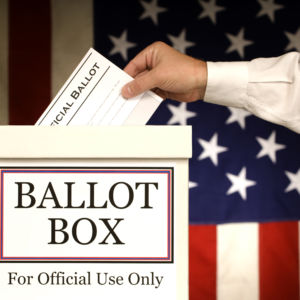Senate Republicans have introduced a bill Thursday that would put restrictions on unions in the hope it will empower workers.
The Employee Rights Act would primarily change union elections and how dues payments can be taken. Republicans and other supporters argue the bill would enhance worker rights when it comes to whether they want to unionize. Those opposed argue the provisions are an underhanded attempt to hurt unions.
Sen. Orrin Hatch, R-Utah, introduced the measure alongside a group of other Republicans. The senator is a member on the Senate Health, Education, Labor and Pensions (HELP) committee where he used to serve as the chairman. Current Chairman Lamar Alexander joined him in introducing the measure.
“Anyone whose real concern is preserving the rights of individual workers should support the Employee Rights Act,” Hatch said in a statement provided to InsideSources. “This comprehensive workers’ rights bill does not include a single provision that empowers employers at the expense of unions. The only parties whose position will be improved by this legislation are employees.”
The bill would require secret ballot elections, protect personal information during unionizing drives, and require unions to undergo recertification votes. An employee could have his or her personal information and vote kept secret from the union. It also requires unions to get permission before using dues for political purposes.
House Republicans introduced their version of the bill May 25. Both congressional chambers must eventually agree to the same language before it can be passed onto the president for approval. Health and Human Services Secretary Tom Price originally attempted to enact the policy in 2015 when he was still in Congress.
Labor unions are not currently required to get permission when they use member dues for political purposes. Union members can choose to opt-out and become a fee paying member instead. That fee can only cover the cost of representing that worker. The bill would flip that and require the union to get permission first.
Secret ballot elections are intended to limit intimidation and coercion by making all votes anonymous. Unions can currently use a method called card check to bypass secret ballots. Unions instead collect signatures that they can use to pressure employers into accepting them. It’s an unregulated process that potentially opens the door to fraud.
Americans for Prosperity issued a coalition letter alongside other conservative groups July 13 in support of the measure. The letter argued that the policy would allow workers an unencumbered opportunity to make their voice heard on whether they wish to belong to a union. It would ensure unions remain accountable to workers.
The measure would also require unions to win a reauthorization vote once half of the original unionized employees have left. The Heritage Foundation, a conservative research nonprofit, found in a 2016 report that just six percent of unionized workers nationwide actually voted for their union.
Labor unions and other critics argue the policy merely serves as an underhanded way to hurt unions. The Communications Workers of America (CWA) expressed several concerns during a congressional hearing June 14. The union primarily notes the bill would hurt workers by limiting the ability of their union to protect them.
“ERA prohibits employers from voluntarily recognizing a union based on a showing of majority support from the employees,” CWA general counsel Guerino Calemine said at the hearing. “It is the preferred way of organizing because it minimizes the strife of the election process, and voluntary recognition usually comes by way of agreements that also require the employer to be neutral or provide the union with actual access to the voters in the workplace.”
The Economic Policy Institute, a progressive research nonprofit, argued the policy would make it unreasonably difficult for unions to win elections by putting too many requirements on them. It adds the measure rigs union elections against labor organizations.
“A proposal that would subvert democracy and stifle working people’s voices” is how Texas AFL-CIO President John Patrick described the bill in March 2016. “The Employee Rights Act would require working people who want to form a union to obtain not just a majority of those who vote in a union election, but a majority of all possible voters, whether they vote or not.”
House Republicans introduced another bill Feb. 1 aimed at making union dues and fees optional for all workers. President Donald Trump has briefly mentioned his support for right-to-work policies. The U.S. Supreme Court might also take up a case that could potentially end mandatory union dues for all public workers.

